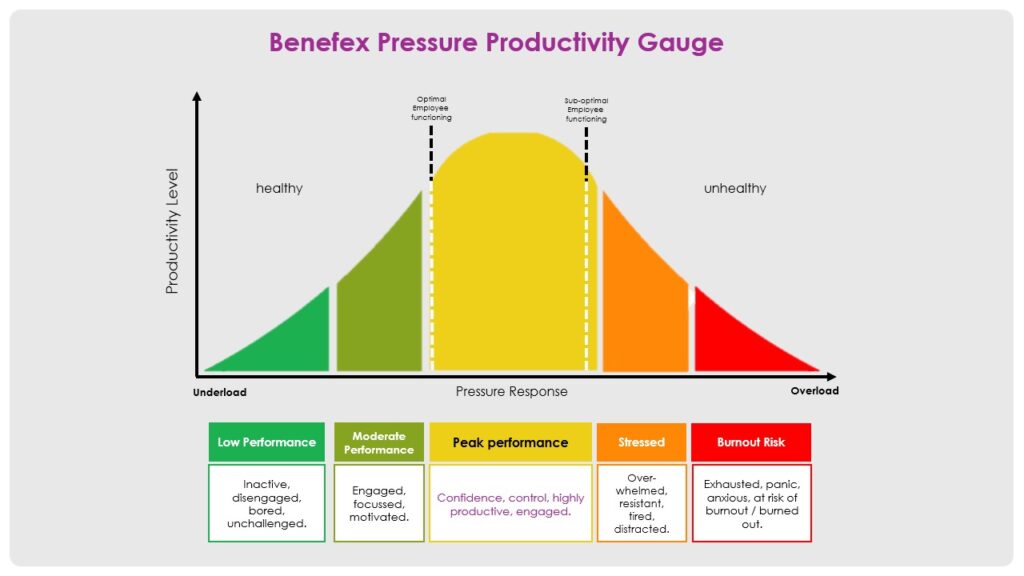
Employee Wellbeing, Workplace Culture
Is urgency culture harming employee wellbeing?
25-07-2024
Whether you’re familiar with the term urgency culture or not, it’s likely that you are aware of the concept. Perhaps you have felt its impact in your own life and seen others around you experiencing the effects.
Urgency culture refers to the expectation to be constantly ‘on’ – it’s the feeling that everything is pressing and needs to be addressed immediately. When urgency culture is at play, people prioritise being constantly available, responsive and productive.
One of the key drivers of this culture has been the rapid advances in communication technologies, which have been revolutionary in terms of how we can work and connect with the world; it’s this very hyperconnectivity that’s creating an environment for stress to thrive. And the consequences of unchecked urgency culture are poor work-life balance, mental health issues, burnout and poor performance.
You can probably relate to some of the ways urgency culture might manifest in your own life… Checking emails outside of your designated working hours, scrolling social media first thing in the morning, feeling the need to constantly be informed by the news, feeling that you’ve got to reply instantly to WhatsApp messages and group chats.
From a work perspective, are you being inundated with message and email requests? Or maybe too many meetings are being put in your calendar, inhibiting you from getting work tasks done during your working hours. Is this causing you to work late, and work is beginning to encroach on your leisure or family time? Are you feeling the pressure to be constantly available and constantly productive or else you feel like you’ll be underperforming or even penalised by your employer? These are all signs of urgency culture infiltrating your life.
How can we stop urgency culture from affecting employee wellbeing?
The good news is that employers are becoming increasingly aware of this urgency culture, which is the first catalyst for change. While it won’t disappear overnight, the onus is on both the individual and the employer to be proactive in navigating and coping with it so we can reduce the instance of stress and mental health issues.
Here are three tips to combat urgency culture and reduce its effects on our wellbeing:
1. Setting boundaries
Employers and employees should establish clear boundaries for working hours and ensure they are communicated with colleagues and teams.
Organisations should encourage employees to set boundaries and detach from work communications. For example, they can encourage employees to have laptop-free rooms in the house, leave their work tech at home when they’re on holiday, and turn off notifications outside of work hours. Establish how employees would be contacted in a genuine emergency. Educating employees on other methods to detach from tech can also be beneficial; for example, using app time lock functionality is useful for employees who find that too much of their time is consumed on apps.
2. Combatting urgency culture
Managers can reduce the effects of urgency culture by effectively communicating the priority of tasks – and only saying something is urgent when it really is. And employees can use task management tools to better manage their to-do lists and reprioritise and organise their tasks. A useful model for task prioritisation is the 4 D’s – Do, Delete, Defer and Delegate.
3. Help employees combat stress
There will be times when employee workloads are high or there are several urgent priorities to juggle, so it’s important to help employees build resilience to stress. If employees don’t get enough opportunities to disengage from work, the pressure can start to build. There are many tried and tested methods to help lower this stress response – so HR and Wellbeing teams and managers can share these techniques with employees:
- Take moments of quiet reflection – In the pre-smartphone era, many of us could unintentionally take moments of reflection. We could patiently wait for a bus and surrender to the boredom. But today we’re always connected to the digital world. The opportunity to switch off now needs to be planned; schedule in time to do nothing.
- Meditate – Practicing meditation has been shown to help increase brain wave activity associated with feelings of calm and focus. This can moderate that feeling of building pressure, support clear thinking and reduce reactive responses.
- Exercise – There are many studies that show physical exercise can make people more resistant to stress. Scheduling in time to move, whether its 10, 30 or 60 minutes a day has a significant impact. Wellbeing apps can make it easier for people to get started and try new exercises.
- Spend time in nature – Spending time outside in nature has been shown to reduce feelings of anxiety and even lower blood pressure.

There are also a number of flexible benefits that can help employees combat the effects of urgency culture:
- Wellbeing days where employees are actively encouraged to do something that benefits their own wellbeing.
- Holiday purchase so employees can take more holidays if they choose.
- Gym memberships that offer employees discounted rates, encouraging them to take more time to build their physical fitness.
- Leisure vouchers and discounts – employees can use these to have experiences that help them to relax and disconnect.

Conor Barry
Physical Wellbeing Lead, Benefex


